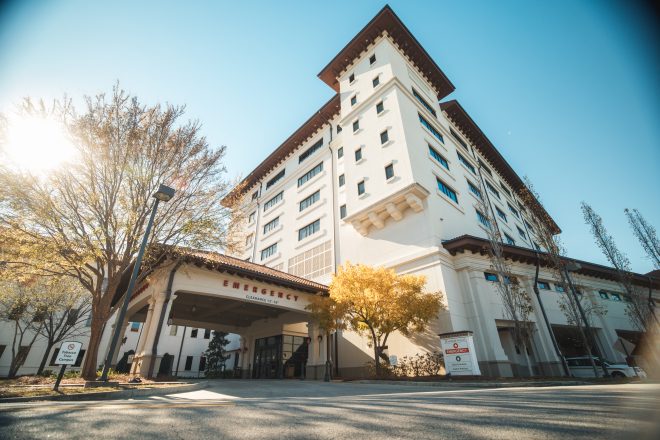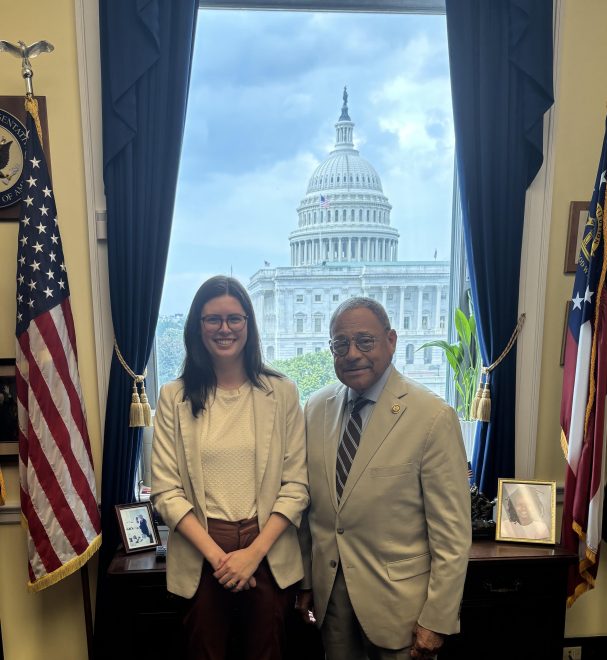Tall Timbers hosts Hands on Thomas County campers
Published 12:37 pm Monday, July 18, 2016

- Students use radio telemetry to get close to their prize.
THOMASVILLE — On a sticky June day, a group of 36 middle-school students from Hands On Thomas County’s Project IMPACT Summer Service Camp arrived sweaty, but ready to learn, at Tall Timbers Research Station and Land Conservancy.
The camp provides students with a week of fun and hands-on volunteer service.
Trending
Angela Kiminas, Hands On Thomas County executive director, visited Tall Timbers as part of the 2016 Leadership Thomasville class and was excited about the possibility of offering volunteer service to Tall Timbers through the Summer Camp.
“I loved learning about the work Tall Timbers is doing and thought it would be great to get the kids exposed to this information and lend a hand,” Kiminas said.
After learning that camp participants would spend the morning at Birdsong Nature Center earning volunteer labor points pulling up a patch of the nasty invasive plant coral ardisia, Tall Timbers decided to offer campers an afternoon glimpse into the world of wildlife research.
Campers were greeted by three research technicians from the Tall Timbers Game Bird Program, each armed with a hand-held antenna connected to a brick-size box of electronics. After separating into Team Quail, Team Turkey and Team Cottonmouth, campers learned that the strange-looking research equipment is called radio telemetry, and they were about to get hands-on experience using it to track wildlife.
Radio telemetry allows researchers to track animals that have been fitted with a small radio transmitter. In the 1980s, Tall Timbers pioneered development of a harness that allows placement of a small transmitter on quail. Since then, the Research Station has radio-tagged more than 20,000 bob white quail as part of research into how far the birds move, how long they live, what eats them, how often they nest and how successful the chicks are.
The data allows researchers to determine how the birds, and other species they track, respond to different methods of land management. In the Red Hills Region, the research and the willingness of landowners to manage land for wildlife has resulted in one of the healthiest wild bob white quail populations in the nation.
Trending
Campers worked their way down the Henry Stevenson Bird Trail, taking turns with the telemetry antenna to make sure they were headed in the right direction.
As Team Cottonmouth passed Gannet Pond, the beeping signal of their telemetry receiver got very strong. After checking behind a large oak tree, the team was excited to discover the transmitter they were tracking attached to a bag of lollypops, not their team mascot.
Team Quail and Team Turkey both recovered their transmitters — and lollypops — and headed up the trail for a final stop at a longleaf pine and wiregrass restoration area.
The longleaf pine forest once covered a band of the Southeast stretching from Virginia to Texas, and often included wiregrass as part of a rich forest floor of plants that burned frequently. Tall Timbers continues to research how to manage land with prescribed fire as a tool to maintain and bring back the open pine forest habitats so many of the declining native animals in our region need.
Back in the air-conditioned E.V. Komarek Science Education Center, campers rehydrated from their brief experience as wildlife researchers in the summer sun and learned more about the animals who benefit from land management with frequent fire.
Day three of Project IMPACT Summer Service Camp came to a close with an appearance by Tall Timbers outreach gopher tortoise and Angela Kiminas reluctantly holding the bag as a large eastern king snake was put away.
For more information about Hands On Thomas County or Tall Timbers Research Station & Land Conservancy, visit www.handsonthomascounty.org or www.talltimbers.org.
Brian Wiebler is the Red Hills Outreach & Education Coordinator for Tall Timbers Research Station & Land Conservancy. He can be reached at brian@ttrs.org.





